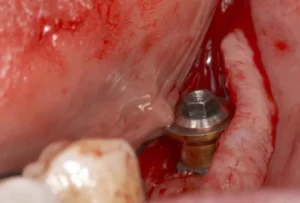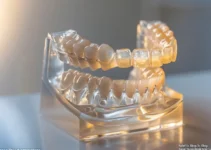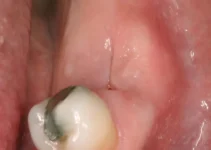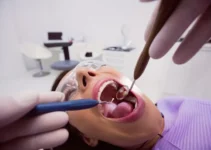Experiencing swollen gums around your dental implant can be a concerning and uncomfortable issue. This condition is often a sign of infection, inadequate oral hygiene, or a reaction to the implant itself. It’s crucial to address swollen gums promptly to prevent further complications such as bone loss or implant failure. Regular dental check-ups, proper cleaning techniques, and immediate consultation with your dental specialist can help in managing and resolving swelling effectively. This article explores the causes, symptoms, and treatment options for swollen gums around dental implants to ensure your oral health remains optimal.
Causes of Swollen Gums After Dental Implant
Experiencing swollen gums after a dental implant procedure can be quite concerning for patients. It’s essential to understand the underlying causes of this condition to effectively address and treat it. Swelling of the gums is a common issue that can arise from several factors, each requiring different management strategies.
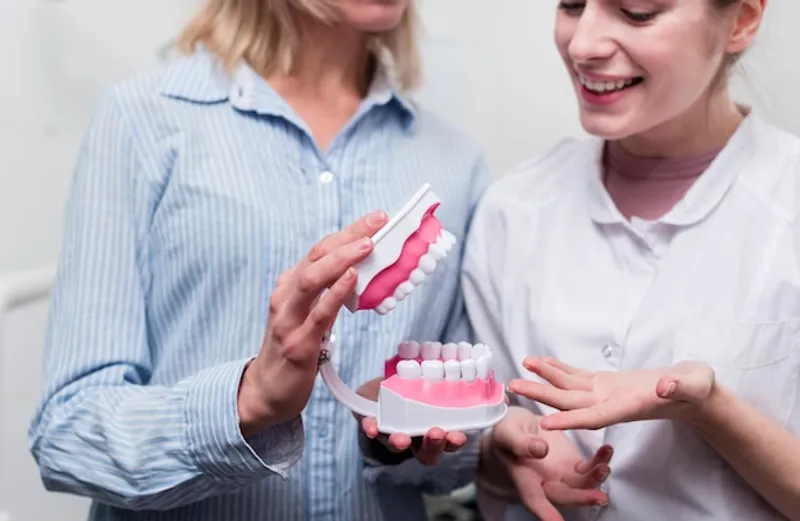
Among the primary causes, infection stands out as a significant concern. Other possibilities include trauma to the gum tissue during the procedure, adverse reactions to the implant material, or issues with the implant placement itself. Let’s delve into these causes in more detail, starting with infection.
Infection
Infections can occur at the site of the dental implant, leading to inflammation and swelling of the gums. This often results from bacteria entering the surgical site during or after the procedure. Poor oral hygiene, pre-existing gum disease, or a compromised immune system can increase the risk of infection.
The symptoms of an infection include persistent swelling, redness, tenderness, and a discharge of pus from the implant site. You may also experience a fever or an unpleasant taste in your mouth. It’s crucial to pay attention to these symptoms and seek immediate dental care if an infection is suspected.
- Maintain excellent oral hygiene
- Follow post-operative care instructions
- Schedule regular follow-up appointments
- Monitor for signs of infection
To prevent and manage infections, it’s essential to follow your dentist’s post-operative care instructions diligently. This typically includes maintaining excellent oral hygiene, taking prescribed antibiotics, and limiting physical activities that might strain the surgical site. Regular follow-up appointments allow your dentist to monitor the healing process and address any emerging issues promptly.
By understanding the causes and signs of infection, you can take proactive steps to ensure a smooth recovery after your dental implant procedure. For more detailed information on dental implants and oral health, explore our other articles to stay informed and keep your smile healthy.
Symptoms and Diagnosis
The identification of dental issues, particularly those requiring implantology and bone regeneration, hinges on recognizing the right symptoms and employing accurate diagnostic procedures. Early detection is crucial for effective treatment and successful outcomes.
Knowing when these symptoms warrant a visit to the dentist can significantly improve the prognosis and overall health of the patient.
Common Symptoms
Some of the most common symptoms indicating the need for dental implants or bone regeneration include persistent discomfort or pain in the affected area. Patients often report chronic toothache or sensitivity when consuming hot or cold beverages. Other notable symptoms include:
- Gum inflammation or swelling around the tooth roots
- Loose or shifting teeth, which is often a sign of bone loss
- Difficulty in chewing or biting
- Visible gaps from missing teeth
Recognizing these symptoms early can lead to a more straightforward and effective treatment plan.
Diagnostic Procedures
Diagnosing conditions that necessitate dental implants or bone regeneration involves a combination of clinical evaluation and advanced imaging techniques. Dentists will conduct a thorough examination, assessing both the teeth and surrounding bone structure.
Common diagnostic procedures include:
- Dental X-rays: Fundamental for visualizing bone loss and tooth structure.
- CT Scans: Provide a detailed 3D image of the jawbone, crucial for planning implant placement.
- Periodontal Probing: Determines the depth of gum pockets and the health of gum tissue.
These procedures allow the dentist to develop a comprehensive treatment plan tailored to the patient’s specific needs.
When to See a Dentist
It’s essential to schedule a dental visit if you experience any persistent symptoms indicating gum disease or tooth loss. Early intervention can prevent the progression of these conditions and reduce the need for more extensive treatment.
Specifically, you should see a dentist if:
- You feel ongoing pain or discomfort in your mouth.
- Your teeth become loose or shift unexpectedly.
- There is visible swelling or inflammation in your gums.
Regular dental check-ups are vital for maintaining oral health and catching potential issues before they become severe. Remember, proactive dental care can significantly impact your overall health and quality of life.
For more detailed information on dental health topics, explore our other articles and stay informed about the best practices for maintaining your oral hygiene.
Treatment and Prevention
Addressing oral health concerns involves understanding both the treatment options available and measures to prevent issues from arising in the first place. The realm of implantology and bone regeneration is comprehensive, covering at-home care, professional interventions, and preventive strategies that together contribute to optimal oral health.
It’s essential to recognize that treatment and prevention are intertwined, and a holistic approach is often most effective. By combining home remedies, professional treatments, and preventive measures, patients can achieve and maintain a healthy and functional oral environment.
Home Remedies
Home remedies play a crucial role in managing minor oral health issues and supporting professional treatments. One of the simplest and most effective home remedies is maintaining excellent oral hygiene. Brushing twice daily and flossing can significantly reduce the risk of periodontal disease, which is a leading cause of bone loss.
In some cases, natural products like saltwater rinses can help reduce inflammation and fight bacteria, providing relief from mild infections and promoting healing. Additionally, using a soft-bristled toothbrush and fluoride toothpaste can protect enamel and support overall oral health.
Another useful home remedy is increasing the intake of vitamins and minerals that support bone health, such as calcium and vitamin D. These nutrients can be found in various foods or taken as supplements to strengthen both bones and teeth. However, while home remedies can be beneficial, they should not replace professional care. If symptoms persist, it is vital to seek advice from a dental professional.
Professional Treatments
Professional treatments for implantology and bone regeneration are tailored to the specific needs of each patient. Dental implants are a common solution for replacing missing teeth, which also helps prevent further bone loss. These implants act as artificial tooth roots, providing a strong foundation for replacement teeth.
Bone grafting is another key procedure in the realm of professional treatments. This process involves taking bone from another part of the body or using synthetic materials to rebuild the jawbone, providing the necessary support for dental implants.
Platelet-Rich Plasma (PRP) therapy is also gaining popularity. PRP accelerates tissue regeneration and healing, making it an effective complement to both dental implants and bone grafting procedures. It uses the patient’s own blood to stimulate natural healing processes, reducing recovery time.
Furthermore, regular professional cleanings and check-ups are essential. These visits allow for the early detection of potential problems, ensuring that they are addressed promptly to prevent more severe issues.
Preventive Measures
Preventive measures are the cornerstone of long-term oral health. Consistent oral hygiene practices, including brushing and flossing, play a fundamental role in preventing gum disease and other conditions that can lead to bone loss.
A balanced diet rich in essential nutrients supports bone and dental health. Foods high in calcium, phosphorous, and vitamin D, as well as avoiding excessive sugar and acidic foods, can help maintain strong teeth and bones. Drinking plenty of water also helps by washing away food particles and bacteria.
Regular dental check-ups and cleanings every six months are vital. These visits allow the dentist to monitor oral health, provide professional cleanings, and identify any early signs of issues that may need intervention.
Additionally, lifestyle choices such as avoiding smoking and moderating alcohol intake are crucial. Tobacco and alcohol can significantly increase the risk of periodontal disease and bone loss. Using protective gear during sports can also prevent traumatic injuries that might lead to tooth and bone damage.
By understanding and implementing these treatment and preventive strategies, patients can enjoy optimal oral health and functionality. To continue learning about other related topics, explore more articles on our website.
FAQs on Dental Implant Swollen Gums
If you’ve recently gotten a dental implant and noticed some swelling around your gums, you might have some questions. Here are quick answers to commonly asked questions about dental implant swollen gums.
Why are my gums swollen around my dental implant?
Swelling around a dental implant can be a normal response to the surgical procedure, particularly in the first few days after the surgery. However, it can also indicate an infection, improper implant placement, or a reaction to the materials used in the implant. Poor oral hygiene can also lead to gum swelling as it encourages the growth of bacteria around the implant site.
How can I reduce swelling around my dental implant?
To reduce swelling, it’s important to follow your dentist’s post-operative care instructions, which usually include applying ice to the affected area, maintaining good oral hygiene, and possibly taking anti-inflammatory medications. It’s also crucial to avoid smoking and ensure you are eating a soft diet to prevent further irritation. If swelling persists or worsens, contact your dentist as additional treatment may be needed.

My name is Salman Kapa, a 73-year-old expert in bone regeneration and dental implantology. With decades of experience in the field, I am dedicated to advancing our understanding of oral health and hygiene. Through my research and writing, I aim to contribute to the development of innovative solutions in dental care.

